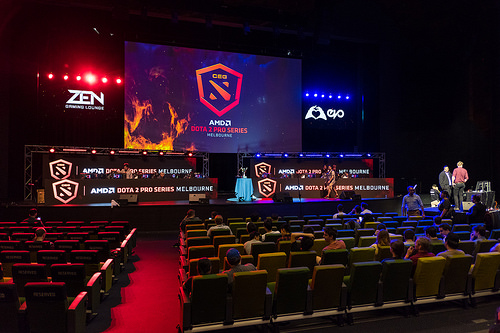Brand loyalty is one of the most important things in nearly every industry. It is in place to keep customers coming back to the same sites and services, and deters them from straying to competitors at the drop of a hat. With the eSports scene growing at an astonishing rate, companies are trying to get in on the action with sponsorship deals. The eSports industry is projected to be worth $1.7 billion by 2022, and a lot of this revenue will be generated through partnership deals with events and teams. However, businesses looking to break into the eSports game need to realize that the fans are more likely to stay loyal to their chosen genre of eSport rather than a particular brand. For this reason, they may need to adapt their usual marketing methods accordingly.
Brands are right to start targeting the millennial social media using fan base of eSports, but there are things that they need to understand before doing so. According to experts, brands need to understand that although different titles all come under the eSports banner, they are vastly diverse and have unique sets of viewers. Harry Lang, the founder of Brand Architects, said that “Dota 2, Counter-Strike, StarCraft, and Hearthstone could be equated to rugby league, cross-country skiing, and darts – they are very different sports.” With this in mind, brands need to market their products to these varying demographics rather than try to group all eSports fans as one.
Brand loyalty hasn’t been neglected in eSports, it just hasn’t broken out properly into this fledgling industry. But that is about to change, and the introduction of well-known brands like Red Bull, Intel, and HP will help boost the appeal of the industry and make more people across the world aware of eSports. All of these brands struck deals with eSports teams in 2018 and, in 2019, many more will follow suit.
The fact that brands will have to market themselves to different demographics of eSports fans who watch diverse titles means that tried and tested methods will need to be changed. In the past, brand loyalty has been achieved with things like reward schemes, promotions, and by having a recognizable logo. The Diamond Club at Buzz Bingo is an example of keeping existing customers, the free first-month subscription at Netflix is a way of attracting new ones, and the famous McDonald’s logo is a symbol of familiarity which keeps diners coming back for more. But in eSports, it seems as though brands will need to focus on targeted marketing to varying demographics above anything else.
Brands that strike deals with teams and companies within the eSports industry need to treat the games in the same way as sports. They need to find out what kind of people watch each title and gear their advertising towards that demographic. If these people feel they are being represented well, they are more likely to keep buying that product or service. Brand loyalty will continue to be boosted by the eSports industry, but it may take some time for the big corporations to feel their way in the growing sector.







